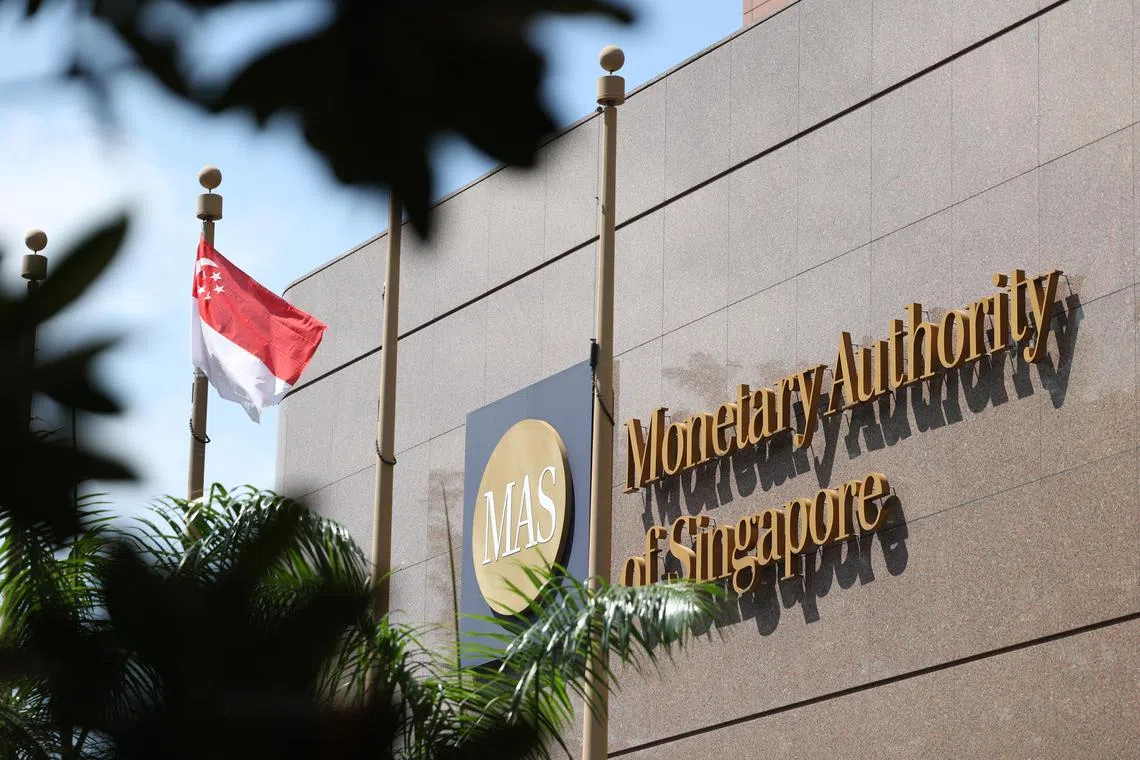Retail investors may be able to tap private market assets under proposed framework
Sign up now: Get ST's newsletters delivered to your inbox

The framework could potentially cover assets such as private equity and private credit from non-bank lenders.
PHOTO: LIANHE ZAOBAO
SINGAPORE - Retail investors in Singapore could soon be able to put money into private market investment funds under a new framework that the Monetary Authority of Singapore (MAS) is looking to introduce.
The framework, termed the Long-term Investment Fund (LIF), could potentially cover assets such as private equity – which are shares of unlisted companies – and private credit from non-bank lenders.
MAS is seeking public feedback on the proposed move, which it said is spurred by growing interest from retail investors in tapping private markets.
There is also more interest from experienced industry players in offering such products to retail investors.
“MAS has received feedback from market players in Singapore that there is potential for growth in this space, given interest from retail investors to include private market investments as part of their diversified investment portfolios,” said the regulator in its consultation paper released on March 27.
Currently, retail investors can primarily buy funds that invest in public markets, such as listed shares and bonds. They have limited access to private market investments which are available to them only through authorised retail funds that are allowed to invest in certain alternative assets, such as unlisted shares, as well as real estate investment trusts (Reits) and unlisted property funds.
Retail investors can also invest in retail bonds backed by private equity, which are currently available in the market.
Investments such as private equity and private credit have traditionally been available only to accredited investors such as wealthy individuals, and institutional investors such as pension funds.
This is because these investments carry higher risks and tend to be long-term.
Retail investors also have different needs from institutional and accredited investors when it comes to private market investments.
Ms Long Pee Hua, partner at Allen & Gledhill, told The Straits Times that the release of the consultation is timely as part of the steps to revitalise Singapore’s equity markets.
“We will be closely reviewing the consultation paper and will submit our feedback to MAS,” said Ms Long.
Mr David Gerald, president and chief executive of Securities Investors Association (Singapore), said that private markets offer unique investment opportunities beyond traditional stocks and bonds, potentially boosting portfolio diversification and risk management.
For instance, investors can gain exposure to promising early-stage companies or projects that might not be readily available through traditional avenues, he said.
Private markets often offer higher potential returns than public markets, but with increased risk, said Mr Gerald, noting that private market investments are typically less liquid than public market investments, making it difficult to quickly sell assets.
“Retail investors might lack the experience and knowledge needed to evaluate and manage private market investments effectively,” he added.
MAS outlined two possible structures that could be set up under the new framework to cater to different investing preferences: a direct fund and a long-term investment fund-of-funds.
A direct fund allows investors to buy into a specific private market asset directly. But it will not include property, as MAS noted that retail investors can already access such assets via Reits.
A long-term investment fund-of-funds, on the other hand, mainly invests in other private market investment funds which, in turn, may cover a variety of assets including real estate.
The range of assets that should be allowed under each structure is up for public feedback, according to the MAS paper.
In addition, the two structures may require different regulatory safeguards, said MAS.
Some proposed safeguards outlined in the paper include ensuring sufficient expertise of the fund providers and having a prudent spread of risk of the products.
In addition, there should be risk warnings included on ATM screens, websites for internet offers and marketing materials for products under the LIF.
Such warnings could state that the private market assets may take a long time to buy or sell and may increase in value only after a long time, according to the consultation paper. This measure will come on top of existing financial regulations for product risk warnings.
Criteria for disclosure requirements are also identified by MAS, to allow the public to be informed about factors such as a manager’s track record, assets being invested and any potential conflicts of interest.
Still, investors should carefully consider whether their risk appetite and investment horizon are aligned with the risks and long-term nature of private market investments before investing in such funds, MAS said.
The proposed move comes after MAS said in February it will launch a $5 billion programme through which it will partner with selected fund managers to invest in Singapore stocks, as part of measures proposed by a review group to revive the Singapore stock market.
MAS said the LIF framework aligns with the ongoing review of Singapore’s equity market to provide retail investors with a wider set of investment choices.
For instance, it allows the private market funds to potentially list on the stock exchange.
People have until May 26 to share feedback at this link


